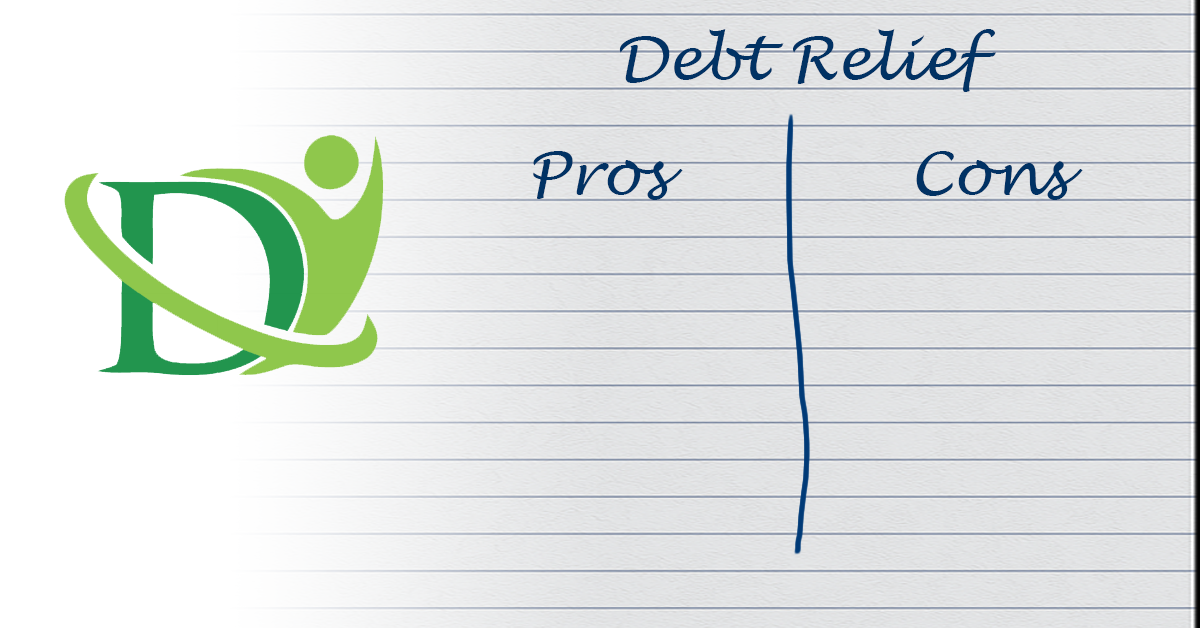
Steps to Navigate a Consumer Proposal Successfully
September 23, 2024
Comparing Debt Relief Programs and Their Outcomes
October 8, 2024Dealing with debt can be overwhelming and stressful, impacting financial stability and well-being. Professional debt advice offers valuable support that can help individuals navigate their financial challenges and work towards a debt-free future. Expert advisers provide comprehensive assessments and personalized solutions tailored to individual needs.
A professional debt adviser can conduct a thorough financial assessment, identifying key areas that need improvement. This assessment forms the foundation for effective debt management plans. Understanding the full scope of the financial situation enables informed decisions and strategies for managing and reducing debt.
Tailored debt management plans are another significant benefit of seeking professional advice. Generic advice may not address specific financial circumstances. Customized plans consider unique situations, providing more effective solutions. These plans can include budgeting advice, payment schedules, and strategies to minimize interest costs.
Negotiation with creditors is often a challenging aspect of managing debt. Professional debt advisers have the expertise to negotiate better terms, lower interest rates, and manageable repayment plans. This negotiation can alleviate some of the financial pressure and make debt repayment more achievable.
Long-term financial education and support are essential for maintaining financial stability. Professional advisers offer continuous guidance, ensuring that individuals understand how to manage their finances effectively and avoid falling into debt again. This ongoing support fosters better financial habits and long-term security.
Seeking professional debt advice provides comprehensive support for managing and reducing debt. Expert advisers offer personalized solutions, creditor negotiation, and long-term financial education, helping individuals achieve financial stability and freedom.
Comprehensive Financial Assessment
A comprehensive financial assessment is the cornerstone of effective debt management. Evaluating the full financial situation provides a clear picture of income, expenses, assets, and liabilities. This thorough assessment identifies areas needing immediate attention and potential opportunities for improvement.
The process begins with gathering detailed information about all sources of income. This includes salaries, self-employment earnings, rental income, and other financial inflows. Equally important is documenting all current expenses, which entails fixed costs such as rent or mortgage payments, utilities, groceries, and variable costs like entertainment and dining out.
Next, reviewing all existing debts is crucial. This includes outstanding loans, credit card balances, and other liabilities. Understanding the interest rates and repayment terms for each debt is essential for prioritizing repayments and planning debt reduction strategies.
An accurate assessment enables the identification of gaps between income and expenses, highlighting where spending adjustments or increases in income are necessary. It also uncovers potential areas where cost-cutting measures can be implemented to free up additional funds for debt repayment.
Conducting a comprehensive financial assessment lays the groundwork for developing tailored debt management plans. It ensures that all financial aspects are considered, allowing for well-informed decisions aimed at achieving financial stability and reducing debt effectively.
Tailored Debt Management Plans
Tailored debt management plans address the unique financial circumstances of individuals. Customized plans are more effective than generic advice, as they consider specific income, expenses, and debt situations.
One of the key components of a tailored debt management plan is creating a realistic budget. This budget prioritizes essential expenses, ensuring that basic needs are met while allocating funds for debt repayment. Identifying non-essential expenses and finding ways to reduce them can significantly increase available funds for paying down debt.
Establishing a debt repayment schedule is another critical element. This schedule outlines the order in which debts will be paid, often prioritizing high-interest debts to minimize overall interest costs. Fixed repayment amounts, set aside each month, contribute to reducing debt systematically.
Consideration of consolidation options may also be part of the plan. Debt consolidation involves combining multiple debts into a single loan with a lower interest rate. This can simplify repayments and reduce interest costs, making it easier to manage debt.
Including strategies to increase income is also beneficial. This might involve taking on freelance work, part-time jobs, or leveraging skills for additional earnings. These extra funds can be directed towards debt repayment.
By implementing tailored debt management plans, individuals can take proactive steps towards reducing their debt. Customized plans, reflective of specific financial situations, foster disciplined financial habits and set the stage for long-term financial stability.
Negotiation with Creditors
Negotiation with creditors is a valuable skill that can significantly impact debt management. Professional advisers possess the expertise needed to negotiate favourable terms, which can provide much-needed relief. Lowering interest rates, extending payment periods, and reducing monthly payments are some common negotiation outcomes.
Creditors are often open to negotiation because they prefer receiving some payment over none. Professional advisers know how to present a compelling case, showing creditors that the proposed repayment plan is beneficial for both parties. This approach often leads to more manageable repayment schedules and reduced financial strain.
In some cases, debt advisers can help clients qualify for hardship programs or debt forgiveness plans. These options can lead to significant debt reduction or even complete elimination in certain circumstances. Understanding which programs are available and applicable requires expertise that professional advisers bring to the table.
Successful negotiation with creditors can transform an overwhelming debt situation into a manageable one. By securing better terms, individuals may find it easier to adhere to their repayment plans and make steady progress towards being debt-free.
Long-Term Financial Education and Support
Long-term financial education and support are crucial for sustaining financial health. Professional debt advisers not only provide immediate solutions but also equip individuals with the knowledge needed to maintain long-term financial stability. This education encompasses a variety of topics designed to foster better financial habits.
One key aspect of financial education is teaching basic budgeting skills. Understanding how to create and stick to a budget helps in managing expenses, saving money, and staying out of debt. Learning to differentiate between needs and wants is a fundamental component of effective budgeting.
Advisers also emphasize the importance of building and maintaining good credit. Good credit habits include paying bills on time, keeping credit card balances low, and reviewing credit reports regularly for inaccuracies. Strong credit scores open doors to better loan terms and lower interest rates in the future.
Saving for emergencies is another critical topic. Advisers recommend establishing an emergency fund to cover unexpected expenses. Having savings set aside helps avoid falling back into debt when unforeseen costs arise.
Continued support ensures that individuals remain on track with their financial goals. Periodic reviews of financial progress and ongoing advice help adapt plans as circumstances change. This ongoing guidance fosters financial resilience and confidence.
Final Thoughts
Seeking professional debt advice offers numerous benefits that significantly enhance financial stability and debt reduction efforts. Comprehensive financial assessments, tailored debt management plans, effective negotiation with creditors, and long-term financial education are key components that pave the way towards a debt-free future.
Understanding the full extent of financial situations through detailed assessments allows for better-informed decisions. Customized debt management plans provide structured paths tailored to individual financial circumstances, increasing the likelihood of success. Skilled negotiation with creditors secures favourable terms, easing the repayment process. Ongoing financial education and support ensure that individuals develop and maintain healthy financial habits, preventing future debt issues.
For personalized and effective debt solutions that cater to unique financial needs, contact DebtHelpers.ca today and take the first step towards financial freedom.

